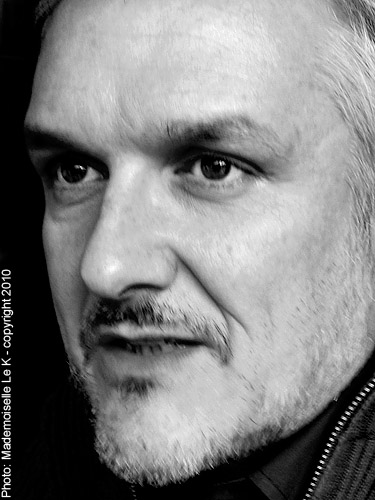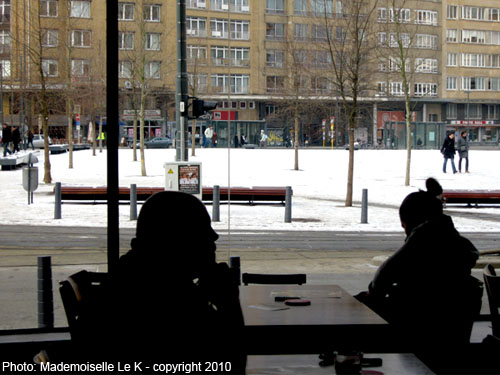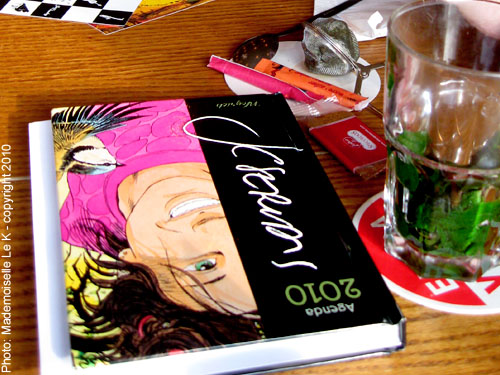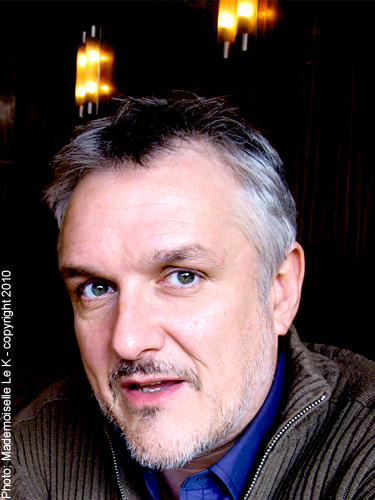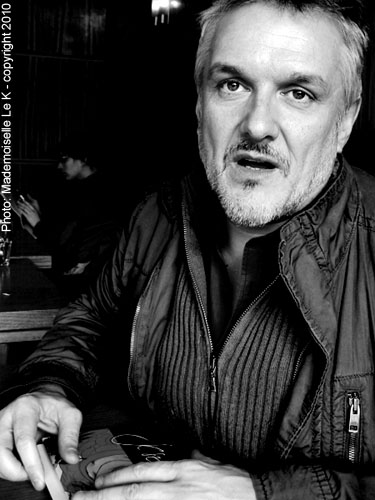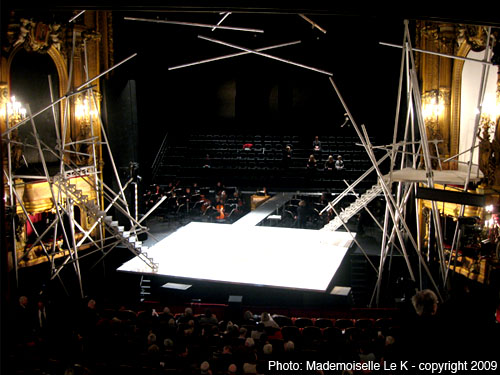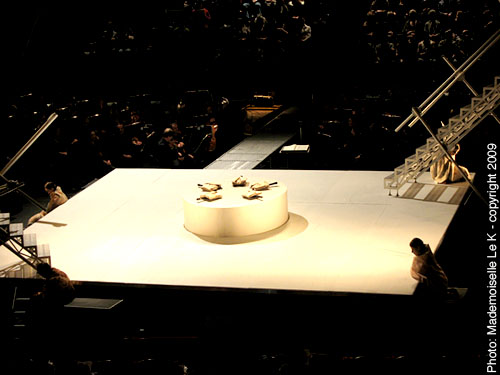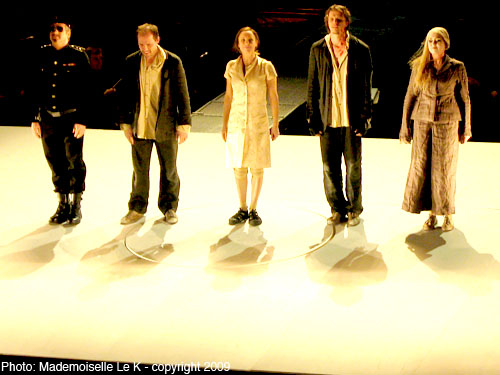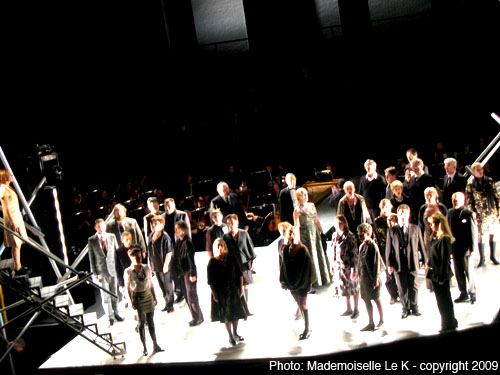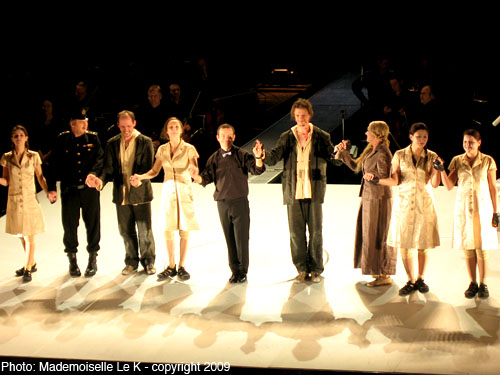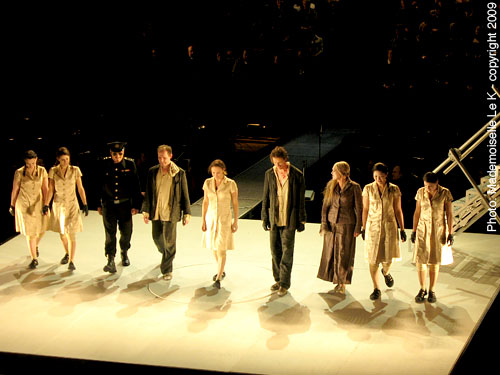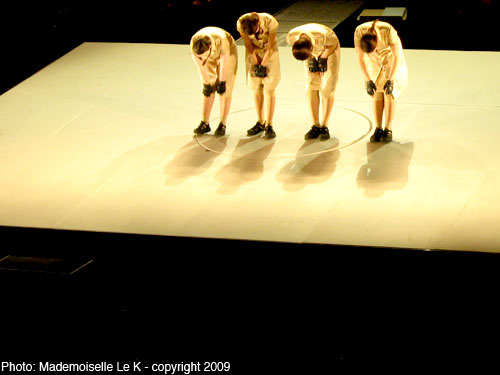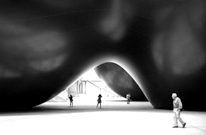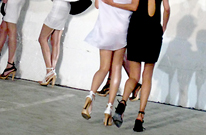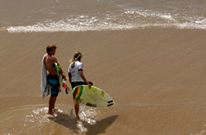Flagey under the snow, picturesque ponds:
I get in the café Belga. Puzzled I look at the numerous retro ceiling fans and the snow behind the big plate glass window. Near to the TV studios, I have an appointement with the « Mr. Culture » of Arte Belgique. Eric Russon is the chief editor and TV host of « 50 Degrés Nord », the daily TV program about the Belgian arts news.
– I am not cut out to be a TV host. We can have a vocation for sports jounalism for example, not for TV. It sounds a bit weird to me. I don’t know how journalists work. I have my press card. But I don’t feel like being a journalist. Maybe I have a too romantic vision of a journalist that crosses the world and takes risks. I am more a curious person and I try to arouse people’s curiosity.
On the table, Eric Russon’s manga cover agenda,
dazzling white light of winter sun. His carrer path is quite atypical : law studies, two bachelors, plus an university diploma (for teaching), in Criminology at ULB (Brussels Universtity).
– When I was at university, I’ve worked in an independent radio station for four-five years, till 1988. By chance, I started working as an Assistant Production of a movies TV program in Télé Bruxelles (Brussels television). I was just found of culture. Then I started making cultural reports and in 1989 , I went on the air. After different TV programs, I’ve hosted a daily cultural TV program from 6 to 7 p.m. : one hour live with guests. I lived Télé Bruxelles in 2006. And since 2004, I’ve hosted the radio program « Culture Club », on La Première (RTBF).
Belgo belges (= the Belgians for the Belgians)?
– No. In the « 50 Degrés Nord » TV program, seven of the ten guests are Belgian. For many raisons, there are often foreign artists, interesting things can be exchanged. Most of the time, foreigners are more comfortable on a TV set than the Belgians, less trained to go on the air. And I don’t know why the Belgians have this hang-up of inferiority. I don’t even understand.
Yet the Belgians are successfull abroad!
– Yes they are and they are good to promote themselves on television. TV is a show and we do news : telling a good story and a good casting of feature editors and guests. We create an atmosphere and a tension too. We set a series of themes. I choice the five subjects of each program. The team is composed of a producer, four journalists (for the reports) and feature editors. I am the only one journalist on the air. I prefer chatting than interviewing my guests, having a dialogue and sometimes criticizes. Chatting give you more options.
What about the audience measurement?
Eric Russon puts down his glass, looking his green mint tea. Almost the end of the meeting, let’s do the questions-answers way: what about the audience measurement?
Time to go. Last question : Brussels?
– A town with many different cultural events. It’s a very concentrated city that gets on my nerves! The snow and the traffic is stuck. Brussels was hottest before : no more nightlife. Le Belga is one of the very few bars opened late at night. It’s a stange city, not a partying city. It’s really polite.
A district : the university district, near the Cimetière d’Ixelles, I’m not the kind of nostalgic who make a pilgrimage. There are many restaurants, bars and a nightlife.

